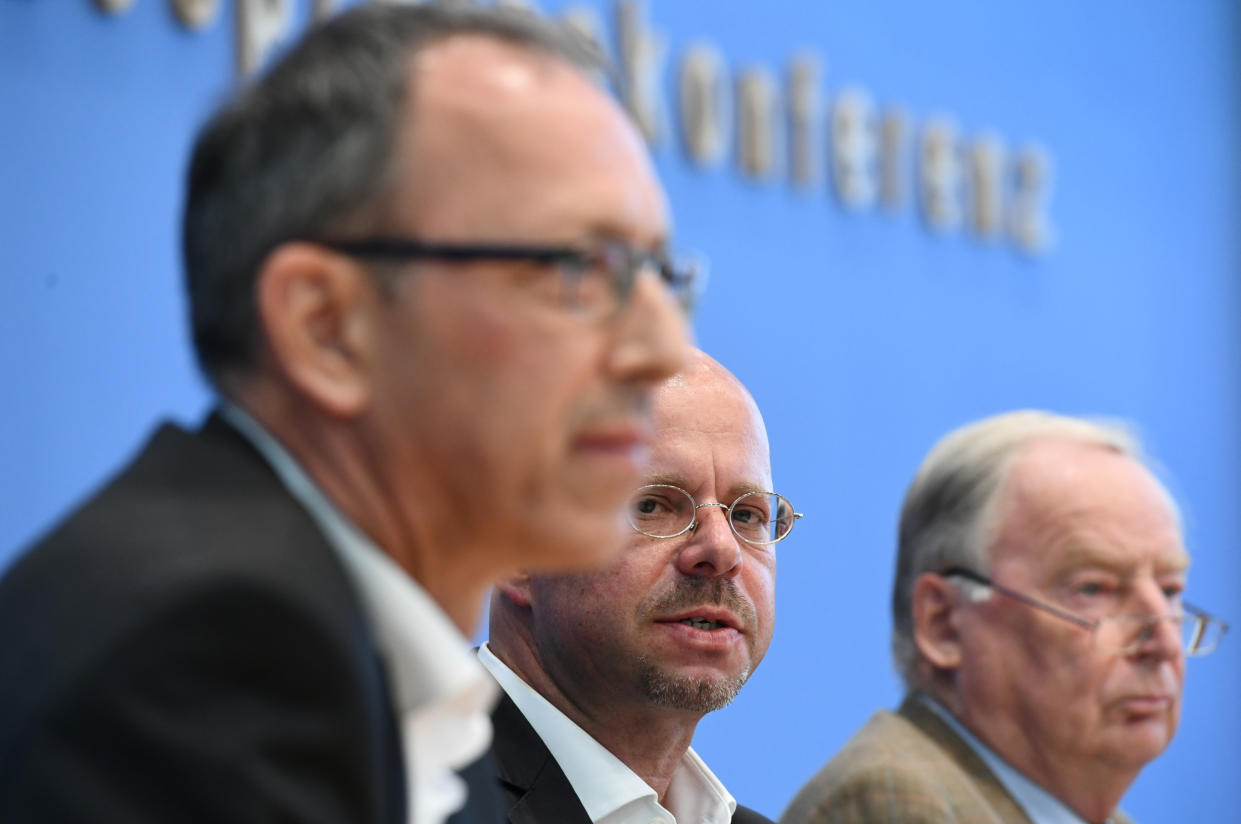AfD warns it can't be ignored as leader compares the far-right party to Italy's Lega

The far-right Alternative for Germany (AfD), which came in second in elections in the eastern German states of Brandenburg and Saxony on Sunday, insisted today that the anti-immigrant party is “here to stay.”
While the AfD is now the second-biggest party in both those states, it is highly unlikely that any of the mainstream parties will enter a coalition with them, which will make the process of forming state coalition governments more complicated in some cases.
Speaking at a press conference in Berlin on Monday morning, AfD co-leader Jörg Meuthen reiterated the momentum the party has gathered and compared its rise to that of the far-right Lega (League) party in Italy. Lega, he says, began by initiating change and is now shaping Italy as the dominant people’s party.
The League, established in the 1990s, entered the Italian government for the first time last year in a coalition with the anti-establishment Five Star Movement, led by the populist Matteo Salvini.
READ MORE: Far-right AfD becomes second-biggest party in two eastern German states
“We will become even stronger as an opposition power,” said Meuthen, adding that the AfD will be standing against government coalitions that are increasingly fragile. All of the mainstream parties in Saxony and Brandenburg have ruled out forming a coalition with the AfD.
Amid a surge in voter turnout from the 2014 state elections, the Social Democrats (SPD) won 26% of the vote in Brandenburg, the state that surrounds Berlin, while the AfD won 23.5%, and chancellor Angela Merkel’s Christian Democrats (CDU) took 15.6%.
The CDU scooped over 32% in Saxony, beating the AfD’s 27.5% and the SPD’s dismal 7%. The Greens won 8.6% in Saxony and over 10% in Brandenburg, reflecting their growing popularity in Germany as a whole.
AfD leader Alexander Gauland told reporters in Berlin today that the “AfD has achieved an election result that does not allow it to be left out permanently” and that he expects that parties like the CDU will be forced to work with the AfD in the future.
"The question will be raised whether it is better to talk with the AfD," said Gauland.

